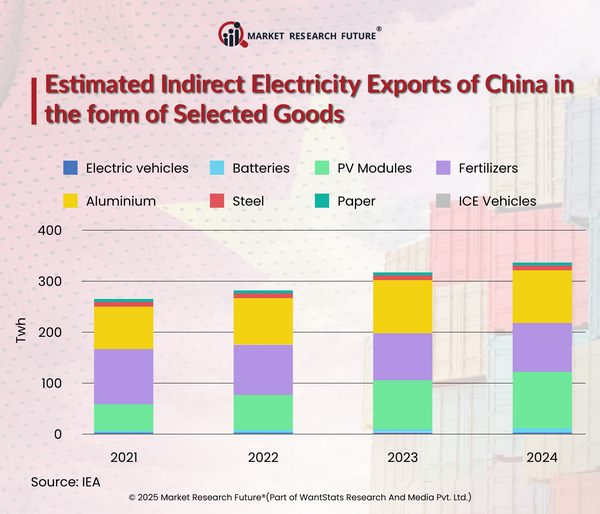India’s Power Surge: Electricity Demand to Soar 6.3 percent Annually Through 2027, Says IEA
Driven by fast economic development and a rising need for electrification, India's energy consumption is expected to rise at an average annual rate of 6.3 percent from 2025 through 2027 (International Energy Agency, IEA). Mostly driven by a jump in cooling demand among increasing temperatures, this increase exceeds the average of 5 percent for 2015–2024. Further confirming India's importance in the global energy scene, the IEA projects that by 2027, India will contribute 10 percent of the overall rise in global power consumption.
Coal will remain the main energy source in India's power system in 2025 and beyond, even if renewable energy is expanding steadily. The IEA projects that, from 74 percent in 2024, coal will account for around 67 percent of India's power mix in 2027, a drop from This slow change fits the government's long-term energy plan, which aims to balance sustainability and economic development.
Pralhad Joshi, the minister of coal for India, reiterated this point of view as the nation does not yet have any urgent plans to phase out coal. Speaking before a parliamentary committee, he underlined that coal is still a cheap and vital energy source, with demand likely to keep increasing until at least 2040. "Thus, no transition away from coal is happening in the foreseeable future in India," Joshi said, stressing coal's vital part in addressing the nation's growing power demands.
India is also seeing a notable increase in gas-powered production and renewable energy, even if coal still rules. Reflecting the nation's aim for a more diverse energy portfolio, the IEA forecasts that gas-based power output will rise at an annual pace of 9 percent until 2027. Large-scale solar, wind, and hydroelectric investments are concurrently determining the course of India's electrical market.
Global Energy Monitor (GEM) claims that India, like other Asian countries, is significantly funding renewable energy. Over one million megawatts (MW) of new power capacity are under development across ten of Asia's biggest markets; solar energy accounts for 26 percent (270,000 MW), and coal-fired facilities make up 24 percent (just under 250,000 MW). Another 20 percent each are wind and hydropower; gas-fired power facilities occupy a lower 7 percent share (70,000 MW).
Notwithstanding these initiatives, coal's tenacity in India's power mix stands in sharp contrast to world patterns. Natural gas accounted for 43.1 percent of U.S. utility-scale power production in 2023, while coal made only 16.2 percent. Though India is making progress in the acceptance of renewable energy, its dependence on coal is still significant.
As 2025 draws near, India will have to balance fast industrialization, electrification, and energy security, including greener energy sources in its power system. Strategic planning and policy interventions will be vital in guiding India's energy scene through 2027 and beyond because demand is skyrocketing.






